
Find Help
More Items From Ergsy search
-

Are GLP-1 medications injectable?
Relevance: 100%
-

Are there any GLP-1 medications that are taken orally?
Relevance: 67%
-

Do GLP-1 medications affect weight?
Relevance: 60%
-
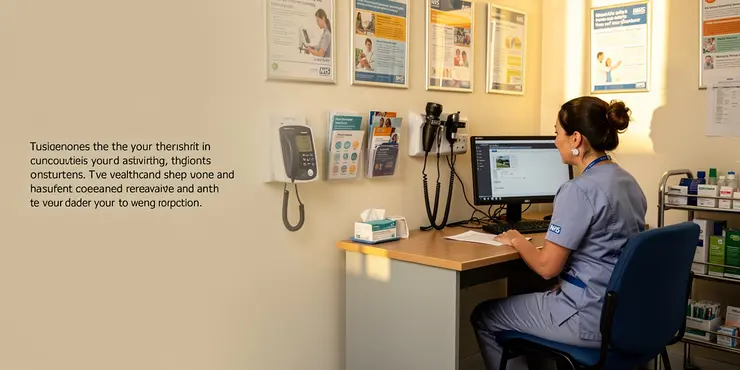
Can GLP-1 be used as a medication?
Relevance: 60%
-

Are there any common side effects of GLP-1 medications?
Relevance: 58%
-

What is GLP-1?
Relevance: 54%
-

What does GLP-1 stand for?
Relevance: 50%
-
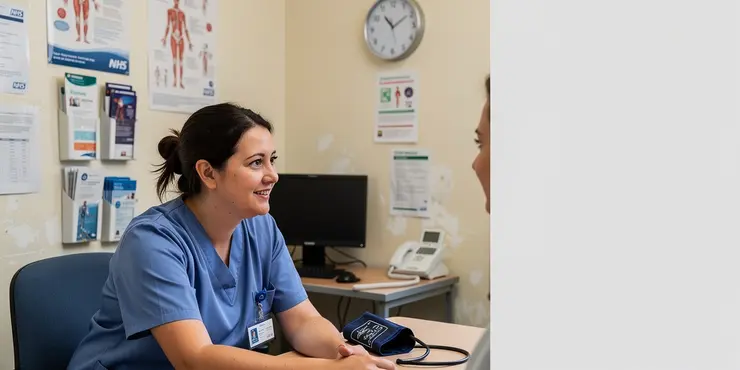
How do GLP-1 receptor agonists work?
Relevance: 48%
-

What is the half-life of GLP-1?
Relevance: 46%
-

Is GLP-1 naturally occurring?
Relevance: 44%
-

Where is GLP-1 produced in the body?
Relevance: 43%
-
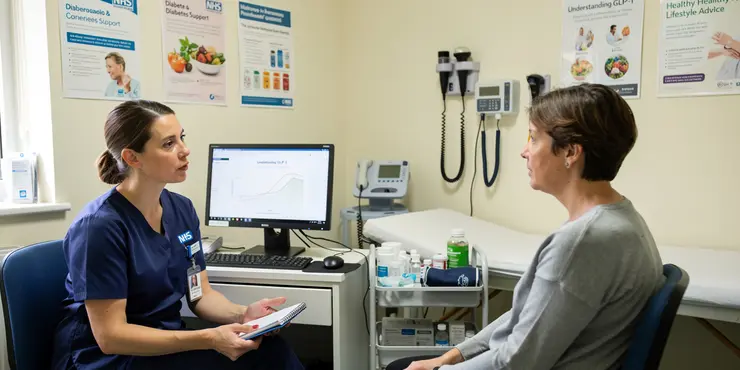
Can GLP-1 levels be measured?
Relevance: 43%
-

How does GLP-1 affect appetite?
Relevance: 42%
-

What role does GLP-1 play in diabetes management?
Relevance: 41%
-

Is GLP-1 related to any other hormones?
Relevance: 41%
-

What is the connection between GLP-1 and insulin?
Relevance: 40%
-

How to inject insulin
Relevance: 40%
-

Eye Injections at Royal Bournemouth Hospital
Relevance: 40%
-
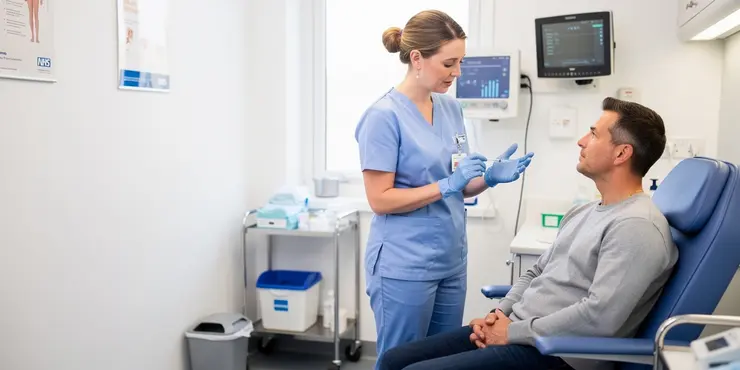
Does Botox injection hurt?
Relevance: 40%
-

Eye Injections at Royal Bournemouth Hospital
Relevance: 38%
-
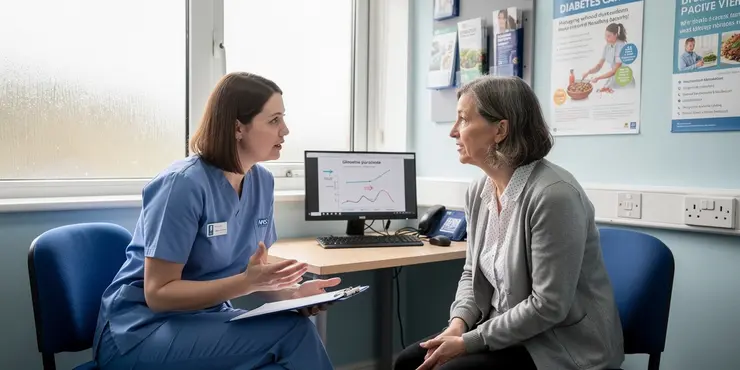
What impact does GLP-1 have on glucose metabolism?
Relevance: 38%
-

Are there any dietary factors that influence GLP-1 secretion?
Relevance: 38%
-
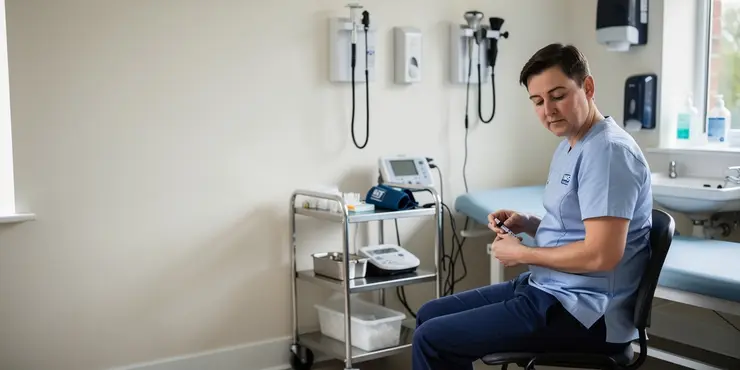
Diabetes: How to inject insulin | NHS
Relevance: 36%
-

Can I take Ozempic with other diabetes medications?
Relevance: 36%
-

Can diabetes medications also help reduce heart attack risk?
Relevance: 35%
-

Evidence-Based Interventions: injections for non-specific low back pain without sciatica
Relevance: 34%
-

Can GLP-1 be used for type 1 diabetes?
Relevance: 33%
-
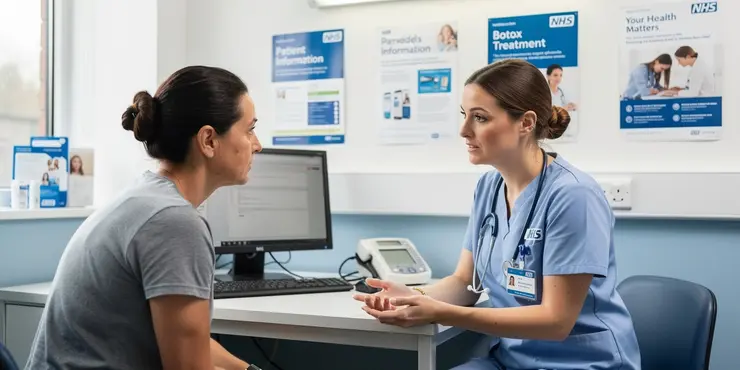
What should I do if I experience side effects after a Botox injection?
Relevance: 32%
-

Do weight loss jabs interact with other medications?
Relevance: 29%
-
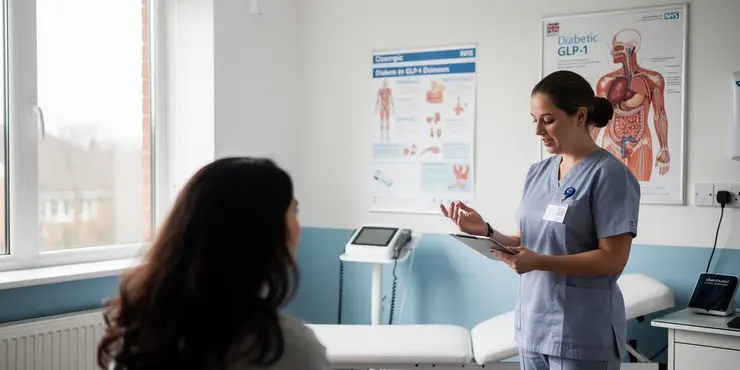
How does Ozempic work?
Relevance: 28%
-
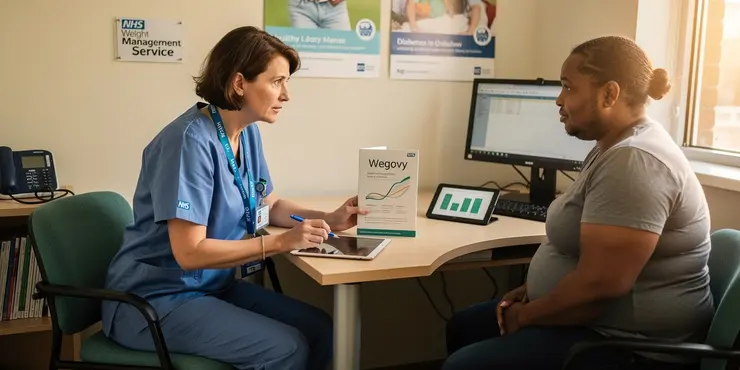
Is Wegovy similar to other weight loss drugs?
Relevance: 27%
-

Do I need any vaccine injections for EU countries?
Relevance: 25%
-

How is Ozempic administered?
Relevance: 23%
-

Can Wegovy be taken with other medications?
Relevance: 23%
-

Are there warnings about using Ozempic with other medications?
Relevance: 22%
-

How do weight loss jabs work?
Relevance: 22%
-
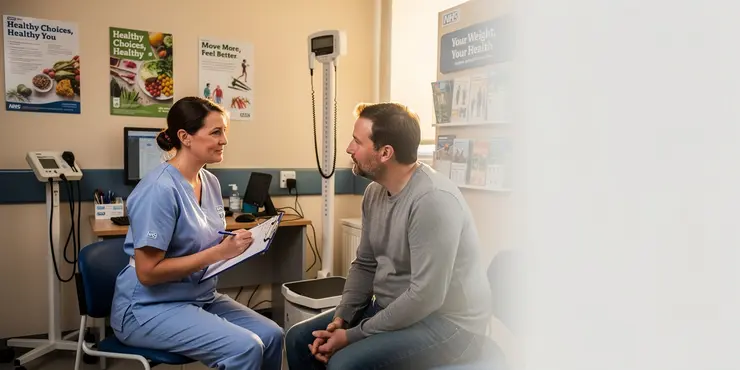
What is the drug Wegovy used to treat?
Relevance: 22%
-

Can Ozempic be used in conjunction with other weight-loss medications?
Relevance: 22%
-
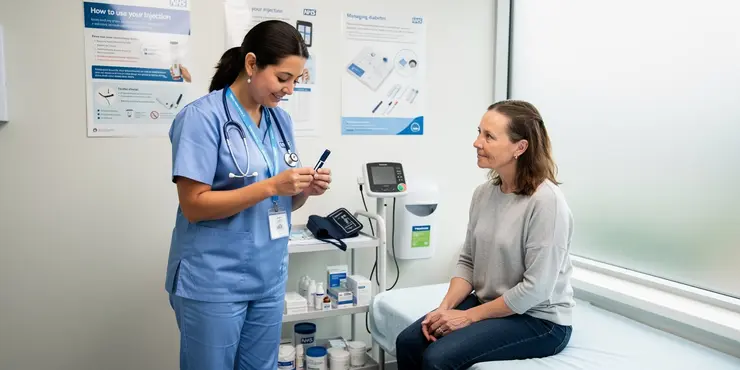
How should I inject Mounjaro?
Relevance: 22%
-

What is Ozempic?
Relevance: 22%
Introduction to GLP-1 Medications
GLP-1 medications are a class of drugs primarily used in the treatment of type 2 diabetes. These medications mimic the action of the glucagon-like peptide-1 (GLP-1), a hormone that plays a vital role in regulating blood sugar levels. They help to stimulate insulin secretion, inhibit glucagon release, slow gastric emptying, and promote satiety, thus aiding in the management of blood glucose levels.
Administration of GLP-1 Medications
In the UK, most GLP-1 medications are administered via injection. These injectable formulations are designed to be user-friendly, with pre-filled pens that allow for easy and precise dosing. The needle used is typically very fine, minimizing discomfort during administration. These injections can be self-administered by patients, often with the guidance and instruction of a healthcare provider to ensure proper technique.
Frequency of Injections
The frequency of GLP-1 injections varies depending on the specific medication. Some GLP-1 receptor agonists require daily injections, while others have been formulated to be administered weekly. This variability allows healthcare providers to tailor treatment plans to individual patient needs and preferences, potentially improving adherence to medication regimens and overall treatment outcomes.
Benefits of Injectable GLP-1 Medications
Injectable GLP-1 medications offer several benefits, especially in terms of glycemic control. These drugs not only help lower blood glucose levels but also have favourable effects on weight management, as they can promote weight loss in many patients. This is an important consideration, given that obesity is a common comorbidity in individuals with type 2 diabetes. Additionally, some research suggests that GLP-1 medications may have cardiovascular benefits, offering protection against heart disease.
Availability of Oral GLP-1 Medications
While injectable forms of GLP-1 medications are the most common, recent developments have led to the introduction of oral formulations. Oral GLP-1 medications provide an alternative for those who are needle-averse or find injections inconvenient. However, the availability of these oral options may be limited, and they may not be suitable for all patients. It’s important for individuals to consult with their healthcare provider to determine the most appropriate form of medication for their condition.
Conclusion
GLP-1 medications, primarily available as injectables, play a crucial role in the management of type 2 diabetes. They offer significant benefits for blood glucose control and weight management. With the introduction of oral formulations, patients have more options than before. Nevertheless, the choice between injectable and oral GLP-1 medications should be made in consultation with a healthcare professional, ensuring that treatment plans are personalized to address the unique needs of each patient.
Frequently Asked Questions
Are GLP-1 medications injectable?
Yes, most GLP-1 medications are administered by injection.
What are GLP-1 medications used for?
GLP-1 medications are used to manage blood sugar levels in people with type 2 diabetes and, in some cases, for weight management.
How do GLP-1 medications work?
GLP-1 medications mimic the hormone GLP-1, which increases insulin secretion, decreases glucagon release, and slows gastric emptying, helping control blood sugar levels.
Are there any oral forms of GLP-1 medications?
Yes, some GLP-1 medications, like semaglutide, are available in oral form.
How often are GLP-1 medications injected?
Injection frequency varies; some GLP-1 medications are injected once daily, while others are weekly.
Are GLP-1 injections painful?
GLP-1 injections are generally well-tolerated and use fine needles, which minimizes discomfort.
Can I administer GLP-1 injections myself?
Yes, after receiving instruction from a healthcare provider, most patients can self-administer GLP-1 injections.
Do GLP-1 medications help with weight loss?
Yes, some GLP-1 medications can aid in weight loss by reducing appetite and promoting satiety.
Are GLP-1 medications safe?
GLP-1 medications are generally safe when used as prescribed, but they may have side effects, so they should be monitored by a healthcare professional.
What are the common side effects of GLP-1 medications?
Common side effects include nausea, diarrhea, and vomiting, especially when starting treatment.
Do GLP-1 medications interact with other drugs?
GLP-1 medications can interact with other drugs, so it is important to inform your healthcare provider of all medications you are taking.
Who should not use GLP-1 medications?
Individuals with a personal or family history of medullary thyroid carcinoma or Multiple Endocrine Neoplasia syndrome type 2 should avoid these medications.
How do I store GLP-1 injections?
GLP-1 injections should be stored in the refrigerator before use, but can typically be kept at room temperature after the first use, according to specific guidelines.
Can GLP-1 medications be used with insulin?
Yes, GLP-1 medications can be used in combination with insulin under medical supervision.
What should I do if I miss a dose of my GLP-1 medication?
If you miss a dose, follow the guidance provided by your healthcare provider or the medication leaflet on how to proceed safely.
Are GLP-1 medications covered by insurance?
Many insurance plans cover GLP-1 medications, but coverage can vary, so it's best to check with your insurer.
Do GLP-1 medications affect cardiovascular health?
Some GLP-1 medications have been shown to have cardiovascular benefits, reducing the risk of heart attacks and strokes.
Are there long-term risks associated with GLP-1 medications?
Long-term use of GLP-1 medications has been associated with some risks, which should be discussed with a healthcare provider.
What should I do if I experience severe side effects from GLP-1 medications?
Seek medical attention immediately if you experience severe or persistent side effects from GLP-1 medications.
Can GLP-1 medications affect kidney function?
While generally safe, GLP-1 medications should be used with caution in people with kidney issues, and kidney function should be monitored.
Useful Links
This website offers general information and is not a substitute for professional advice.
Always seek guidance from qualified professionals.
If you have any medical concerns or need urgent help, contact a healthcare professional or emergency services immediately.
Some of this content was generated with AI assistance. We’ve done our best to keep it accurate, helpful, and human-friendly.
- Ergsy carfully checks the information in the videos we provide here.
- Videos shown by Youtube after a video has completed, have NOT been reviewed by ERGSY.
- To view, click the arrow in centre of video.
- Most of the videos you find here will have subtitles and/or closed captions available.
- You may need to turn these on, and choose your preferred language.
- Go to the video you'd like to watch.
- If closed captions (CC) are available, settings will be visible on the bottom right of the video player.
- To turn on Captions, click settings .
- To turn off Captions, click settings again.
More Items From Ergsy search
-

Are GLP-1 medications injectable?
Relevance: 100%
-

Are there any GLP-1 medications that are taken orally?
Relevance: 67%
-

Do GLP-1 medications affect weight?
Relevance: 60%
-

Can GLP-1 be used as a medication?
Relevance: 60%
-

Are there any common side effects of GLP-1 medications?
Relevance: 58%
-

What is GLP-1?
Relevance: 54%
-

What does GLP-1 stand for?
Relevance: 50%
-

How do GLP-1 receptor agonists work?
Relevance: 48%
-

What is the half-life of GLP-1?
Relevance: 46%
-

Is GLP-1 naturally occurring?
Relevance: 44%
-

Where is GLP-1 produced in the body?
Relevance: 43%
-

Can GLP-1 levels be measured?
Relevance: 43%
-

How does GLP-1 affect appetite?
Relevance: 42%
-

What role does GLP-1 play in diabetes management?
Relevance: 41%
-

Is GLP-1 related to any other hormones?
Relevance: 41%
-

What is the connection between GLP-1 and insulin?
Relevance: 40%
-

How to inject insulin
Relevance: 40%
-

Eye Injections at Royal Bournemouth Hospital
Relevance: 40%
-

Does Botox injection hurt?
Relevance: 40%
-

Eye Injections at Royal Bournemouth Hospital
Relevance: 38%
-

What impact does GLP-1 have on glucose metabolism?
Relevance: 38%
-

Are there any dietary factors that influence GLP-1 secretion?
Relevance: 38%
-

Diabetes: How to inject insulin | NHS
Relevance: 36%
-

Can I take Ozempic with other diabetes medications?
Relevance: 36%
-

Can diabetes medications also help reduce heart attack risk?
Relevance: 35%
-

Evidence-Based Interventions: injections for non-specific low back pain without sciatica
Relevance: 34%
-

Can GLP-1 be used for type 1 diabetes?
Relevance: 33%
-

What should I do if I experience side effects after a Botox injection?
Relevance: 32%
-

Do weight loss jabs interact with other medications?
Relevance: 29%
-

How does Ozempic work?
Relevance: 28%
-

Is Wegovy similar to other weight loss drugs?
Relevance: 27%
-

Do I need any vaccine injections for EU countries?
Relevance: 25%
-

How is Ozempic administered?
Relevance: 23%
-

Can Wegovy be taken with other medications?
Relevance: 23%
-

Are there warnings about using Ozempic with other medications?
Relevance: 22%
-

How do weight loss jabs work?
Relevance: 22%
-

What is the drug Wegovy used to treat?
Relevance: 22%
-

Can Ozempic be used in conjunction with other weight-loss medications?
Relevance: 22%
-

How should I inject Mounjaro?
Relevance: 22%
-

What is Ozempic?
Relevance: 22%


